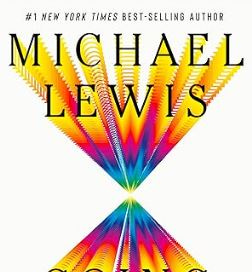Michael Lewis aims to plant the seed that there was no crime in the SBF saga, nor are any funds missing, and that FTX was solvent on bankruptcy day. Losses that Sam Bankman-Fried was associated with ($300m loss at Jane Street in 2016, $4m loss in Ripple in 2018, $1bn hack in 2021, or the $8bn customer funds’ misappropriation) are downplayed. ‘Process before outcome.’
Puzzling, Lewis paints SBF as a ‘kid,’ and any losses are simply due to a youth prank. He writes the book from the perspective of a parent who has lost a child, as Lewis has sadly experienced in 2019 when he lost his daughter. Sam’s parents, with their 69 and 71 years of life experience, are the grieving parents who might never have a normal family dinner with their 31-year-old son – in their eyes, he still and will always be their ‘child.’ But SBF reached adolescence more than a decade ago and cannot hide behind the geeky whiz kid masquerade.
Reality kicks in with the current trial, which Lewis questioned might occur. Sam’s lawyers (Mark Cohen and Christian Everdell) previously failed to set free pedo-queen Ghislaine Maxwell, convicted of a 20-year prison sentence. But they might have been the only lawyers willing to take the challenge, just like Lewis, Sam’s lawyers appear to go for the ‘Hail Mary’.
Anybody who is looking for answers to what happened at FTX or why his / her money on FTX is inaccessible will not get those questions answered. Lewis is undoubtedly an excellent author, but he cherry-picks his arguments. Conveniently, he leaves out the John Ray lawsuits or the testimonies of Sam’s three co-conspirators, all of whom admitted guilt. Instead, Lewis uses only Dan Friedberg’s testimony to paint the bankruptcy lawyers Sullivan & Cromwell uncooperative.
Lewis’s criticism of Sam appears limited to being unemotional and not caring about the feelings of others. Constance Wang, FTX employee number 8 and FTX’s COO was shocked when she realized that she only received a 0.04% stake in FTX, far less than people in lower ranks than her. Lewis also portrays Caroline Ellison as not up to the task, instead having a glass of wine here and there. Sam preferred his nerd-boys club, but as the jury is stacked with 75% women (9 out of 12), the defense’s strategy to blame the missing $8bn customer funds on Caroline could backfire.
Instead of explicitly writing that FTX moved their operation from Hong Kong to the Bahamas because crypto regulation became restrictive, Lewis claims that Sam didn’t want to commit to being in an intimate relationship with Caroline. We learned the same dismissing behavior towards Vogue editor-in-chief Anna Wintour, who wanted to meet Sam due to his deep pockets and pay for her annual charity event. Instead, Sam didn’t listen to a word she said over a Zoom call. He couldn’t be bothered to show respect. Other celebrities offered themselves as endorses of the FTX brand. Everybody wanted a piece of this free money.
The book is very light on facts. Instead, the story repeatedly describes Sam as a ‘kid’ who disappoints his parents as nobody – except his parents – appears to matter to him, nor did he matter to anyone before or while he had no money. It’s the power of the nerds when they strike gold, and suddenly, the high-school quarterback wants to hang around with them. Tom Brady wanted $55m for 20 hours of service. SBF paid $1bn in endorsement deals, free cash flow that might have never been available if not been able to tap into Alameda’s unlimited resources.
Of course, Lewis floated the idea that the customer's money was still there. There is no discussion about Alameda’s trading losses or why $8bn is missing. Lewis, just like SBF, sticks to the story until the end: “FTX is fine. We don’t’ invest client assets”.
If you really want to learn what happened at Alameda and FTX, read the book: ‘Crypto Titans: how trillions were made and billions lost in the cryptocurrency markets’






